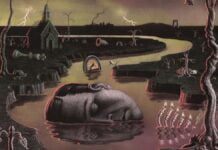Esther E Galbraith’s one-act play The Brink of Silence is based on the theme of an expedition to Antarctica. The process of looking for information and resources is called exploration or expedition. Numerous investigations, including scientific ones, are conducted at the destination due to these expeditions. Except for the freezing poles, the Arctic Circle in the north and the Antarctic Circle in the south, most of Earth’s regions had been explored by the late 18th and early 19th centuries. Except for scientific research and study, no one resides in Antarctica. Unlike the Arctic, this continent is uninhabited. The Inuit people of the Arctic, who have endured millennia of difficult living conditions, have a rich and fascinating culture.
There was a hunger to explore desolate Antarctica in the late 18th century. There were numerous voyages during that time when daring adventurers risked their lives to leave their marks on history. Even in the 21st century, these journeys to Antarctica are still an escape from civilisation. For hardly more than two years, scientists or explorers resided there. Whale companies have also constructed whaling stations in Antarctica. A whaling station is a pier where whale hunters occasionally reside and process the bodies of whales they have hunted.
Such complexities of an Antarctic expedition serve as the basis for The Brink of Silence. She has skillfully incorporated a moving tale of a doomed explorer within the drama genre. An expedition to Antarctica was headed by Englishman Gilbert Darton and his troops. It was a futile endeavour. The awful conditions on the continent cost him every man. When his little, damaged boat washed up on Parker’s Island, Lauter, a whaler, discovered him. Only when a whaler touched Parker’s Island six months after his incredible escape from the jaws of death did he depart Antarctica.
In Antarctica, the Darton expedition met its demise in this manner. The men were injured after they lost their ship. They made a fruitless attempt to make their way back in their little boats. Their food supplies were insufficient, and they lacked the stamina to row the boat. Their boat washed up on Parker’s Island’s coast after being stranded in a horrible blizzard. Gilbert Darton was the only one who made it through.
Fortunately, Lauter, one of the island’s whalers, discovered Darton. Lauter looked after Darton for six months until a whaling ship came to their island. Lauter did not know with whom he had become friends. Darton accompanied the whaler to Buenos Aires, who had travelled to Parker’s Island to get whale oil. The whaler had him admitted to a hospital in Buenos Aires. It took him months to recover, and when he did, he was told two terrible things. He first discovered that the Darton mission had been abandoned as a complete failure and that his position as the expedition’s leader had been terminated, thereby declaring him a dead man. No one was aware that he was still living. The newspaper article announcing his wife Lady Darton’s impending marriage to Carruthers was the second piece of news that broke him.
Instead of going to England, Darton took the name Ernest Cole and returned to Parker’s Island in Antarctica. He transformed his entire identity by taking Lauter’s place at the Parker’s Island whaling station. At the start of the play, he had been living under this false identity for eight years. Macready is a fellow whaler and has been in Antarctica for the past two years. He is wretched. The terrible silence has driven him to his wit’s end, and he is anxious to go home. He misses his nephews in Manchester terribly.
Macready does not want to leave Cole alone. Therefore, Macready begs Cole to go home with him and fights for it. Cole finally speaks out about his past at this point. He tells Macready the story of his failed expedition, his narrow escape from a certain death, and his protracted recovery in the hospital. Cole explains to him the rationale behind his identity shift. After Macready questions him about his family, Cole finally confides in his friend about how much he truly misses his son. He shares with him his unfulfilled plans for his beloved son. In an impassioned outburst, Macready informs him that his choice was incorrect.
When it comes to his choice to remain in the icy woods, Chole remains silent. He notes something about Antarctica’s summertime. He remarks that the weather was ideal for him to reach his goal of reaching the end of the Earth. Everything changes dramatically when they hear voices from individuals some distance away from the log house. Two young men are outside their log house. One appears fine, but the other is severely injured and has a ragged appearance. With a deep gash on his forehead, Johnson is almost carried by Darton. The men enter the house. Cole takes care of Jhonson’s wounds while Macready gives them cups of steaming broth to eat.
On an expedition in the Pathfinder, the youthful Darton and Johnson successfully crossed Antarctica. The leader, young Darton, informs them that this was the fourth attempt; the previous two were undertaken by two other explorers, Remensen and Courcelle, and the first was made by his father, Gilbert Darton, of the renowned Darton expedition. He believes that he is fortunate enough to be successful. This is indeed the son of Ernest Cole, a.k.a. Gilbert Darton. When he hears of his son’s accomplishment, the father is ecstatic, but he holds it in. He covers it up with some words of encouragement.
The members of Darton’s squad have spotted their ship, the Pathfinder, outside. Their boisterous cheers were audible to the men within the home. Young Darton leaves Johnson in the custody of Cole and Macready as he gets ready to meet his men. Young Darton is happy to assist the elderly folks. Young Darton consented to bring Macready in the Pathfinder at Cole’s request. As the play ends, Cole is still playing cards and thinking back on his meeting with his son, while Macready can still not understand his friend’s selflessness and sacrifice.
The Brink of Silence was written for an assignment within a playwriting group at The Drama League Players of Washington that challenged each member to develop the Enoch Arden situation in a new and imaginative way. Galbraith’s play was chosen as the best submission and later produced by The Drama League Players at the Wilson Normal School on April 17th, 1917.
The Significant Silence
Our frozen South Pole is Antarctica. The drama is set in a whaling station in this immense white expanse of emptiness. An explorer’s trip to Antarctica is a unique experience. It feels like one has arrived at the end of the planet and is unlike any other place he has been. When Young Darton and Cole first meet, they immediately click and form a special connection. They both share an intense love and admiration for the frozen continent.
Even the Presbyterian Macready believes they are on the edge of the world. Young Darton refers to it as “the brink of silence”, and his father eloquently describes it as “the great white silence”. The frozen and silent polar continent symbolises Gilbert Darton’s long silence. He keeps young Darton from knowing that he is, in fact, his own father. His silence is as heartbreaking and enigmatic as the icy continent. Even after meeting his father, young Darton was unable to identify him. The title of the play stands for Antarctica, and it is the main plot of the play.




























